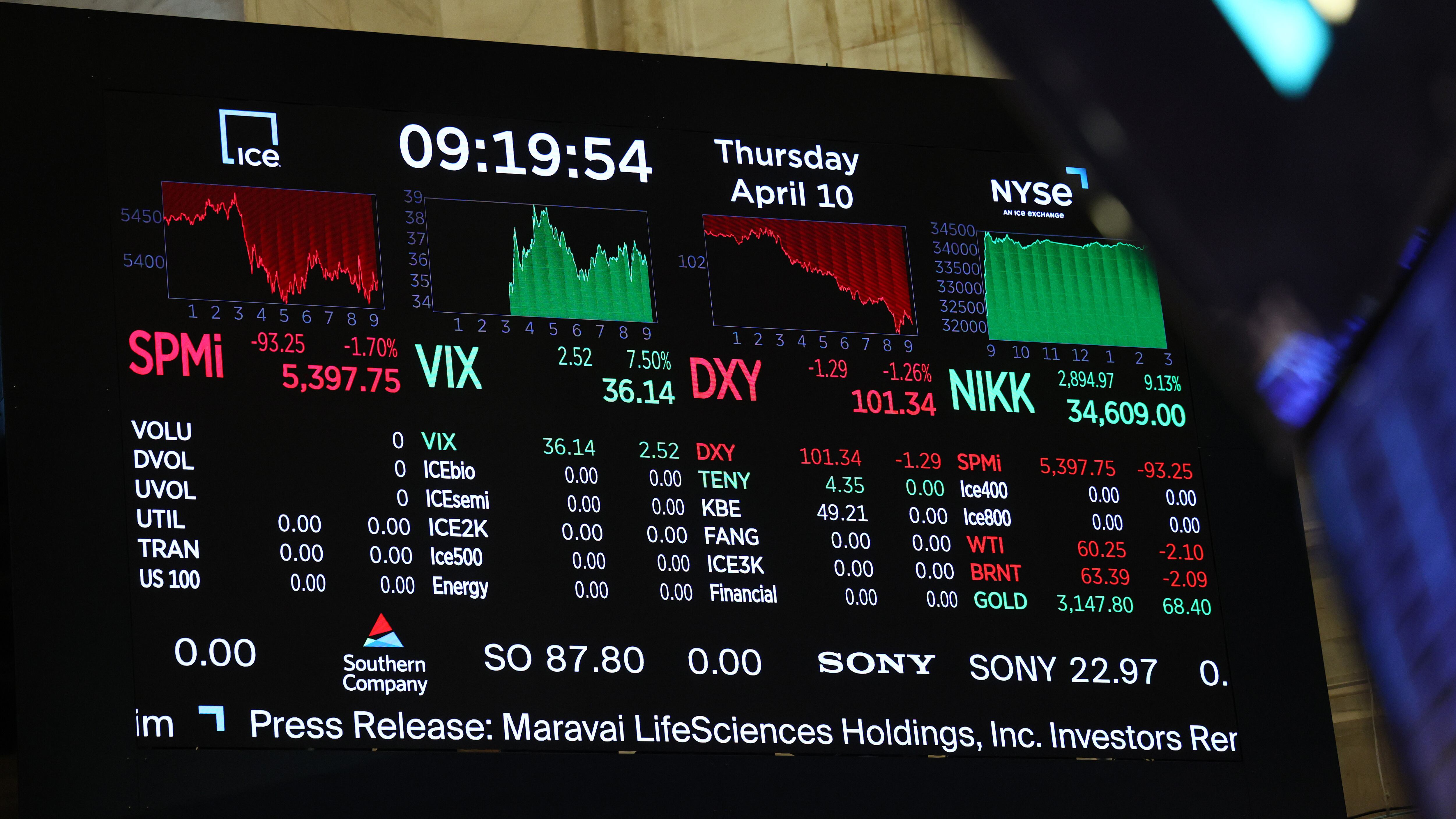When hundreds of billions of dollars in value disappeared from the stock markets due to President Donald Trump’s tariffs, the president remained firm in his decision to implement them.
PUBLICIDAD
However, when the bond market showed signs of trouble, Trump made a 180-degree turn and paused his “reciprocal tariffs” for 90 days “because the bond market was getting restless.”
PUBLICIDAD
Usually, when the stock market crashes, investors flee to the “safe haven” of Treasury bonds, causing their prices to rise and market yields or interest rates to fall. This is what typically happens in normal times.
However, with the entry into force this week of the US tariffs, investors were selling stocks and Treasury bonds, causing price drops in both markets. This raised alarms even in the eyes of President Donald Trump, leading him to decide to pause his so-called “reciprocal tariffs.”
TRADE TENSION
According to economists and experts, the last time this worrying event occurred was during the COVID-19 pandemic crisis in early 2020, so these are signals that cannot be ignored that something is wrong. Very wrong.
Amidst the growing trade tension between the United States and China, a new battleground has begun to take shape: the U.S. public debt market.
The rumors that China, the second largest foreign holder of US Treasury bonds after Japan, could be disposing of these assets in large quantities have shaken markets, worried investors, and sparked a strategic debate in both the United States and China about the possibility.
Beyond tariffs and political speeches, a deeper and more structural threat looms: the use of sovereign debt as a geopolitical weapon.
SPECULATION
This maneuver encompasses significant economic and diplomatic implications that may not be the best move for China, according to Mark Williams, an economist at Capital Economics.
There has been a lot of speculation this week about a possible massive sale of bonds by China with the aim of altering the value of the dollar, increasing the cost of financing the US deficit, and creating instability in global markets.
There are those who believe that China could be trying to deliver a silent but devastating blow to the US financial system at the most vulnerable moment of Donald Trump’s presidency.
However, Mark Williams sees this option as a double-edged sword. Although selling US debt may seem like an effective punishment, some experts warn that China’s power in this field is limited.
THE KEYS
• U.S. Treasury bonds are considered the safest haven in the market. It is where investors from around the world turn to with the confidence that the dominant role of the U.S. in the global financial system will ensure the safety of their assets.
China has maintained for decades a key position as a financier of the US deficit, acquiring bonds.
• Over the years, it has accumulated up to $1.3 trillion in Treasury bonds
Currently, that figure stands at 761.000 billion dollars, according to data from the US Department of the Treasury.
To delve deeper into the topic, the economics expert answered some questions for Metro World News.
-Why do you think so much weight is given to the damage that China could cause to the United States with a massive sale of bonds?
The value of US bonds held by China represents less than 3% of the total US public debt, and only 9.6% of the debt held by foreign entities. This means that a devastating impact, while possible, is not imminent or guaranteed.
Furthermore, a large portion of these bonds are used as financial collateral, making their mass liquidation difficult without negative consequences for China as well. The financial interdependence is such that the use of this weapon could have a boomerang effect.
If China were to decide to carry out a massive sale of its US Treasury bonds, the value of the debt would plummet and yields would soar. This would raise the borrowing costs of the US government and severely impact public finances, a highly destabilizing move. However, this scenario is very unlikely because the impact on China would be enormous.
-How would China be affected by a massive bond sell-off?
A massive sell-off of Treasury bonds would be the equivalent of throwing a hand grenade at someone sitting in front of you in a room. Trump would be harmed, but Xi would also suffer damage.
China and its banks hold around 3 trillion dollars in US bonds and other assets, comparable to the GDP of the United Kingdom. There is no way to get rid of 3 trillion dollars in assets quickly.
If China were to start selling bonds and assets massively, that would cause a drop in the value of the dollar, which in turn would collapse the value of all its remaining dollar holdings. And if the renminbi - the Chinese currency - appreciates, it would significantly increase the cost of Chinese exports to the rest of the world, affecting its export capacity.
-Are we facing a financial cold war?
Beyond rumors and assumptions, it is a fact that the global economy is navigating through uncharted waters. The interdependence between China and the US, far from being a factor of stability, has become a dangerous negotiating weapon, the effects of which could be unpredictable.
If China decides at some point to get rid of Treasury bonds, even though that action would also affect them, or even if they only use this possibility as a rhetorical tool, it could alter the international perception of the dollar’s security and trigger a reconfiguration of the international financial system. I believe that what is at stake is not just a trade battle, but global economic leadership in the 21st century.
